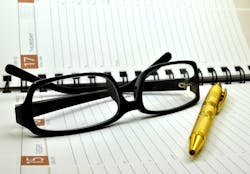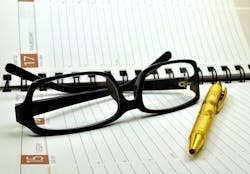How to stay on top of your game as a dental hygiene student
By Irene Esteves
July 22, 2013
Dental hygiene programs can be extremely challenging and stressful. The key to success, therefore, lies in management of the workload, the initial and continued organization of the material, and keeping the balance between school and a personal life.
ADEA launches the Dental Hygiene Centralized Application Service
Get organized!
From the very beginning, organization is a key component. After the syllabi is distributed, immediately record the dates of exams, projects, and rotations in a planner in order to set study goals and have an overall outlook of deadlines. Color-coding is a helpful strategy, as it can emphasize particular events, such as test dates, and shows the general layout within a month. That way, you can see when you’ll need to allot more study time and can plan accordingly. Furthermore, since highlighting dates in a written or digital planner allows priorities to be seen, you can potentially create a more balanced study and personal schedule by making plans based on your set agenda.
Organizing paperwork is also an obvious must. It is easy to become behind on filing, yet this little task can do wonders, as you will constantly need to reference material, whether it be for clinic or for studying for an exam. Therefore, it is important to decide on how to organize. If the schedule is in a block format, perhaps have a binder with dividers or an accordion for the set of classes in a day. If a particular dental hygiene program is paper heavy, then having one binder for each class would be more appropriate. Students can of course personalize the divisions depending on a layout of a class. One example of a functioning class binder or organized computer file is to separate the syllabus, lecture notes and power points, visuals or media, old exams and quizzes, and finally miscellaneous documents.
Learn how to study for each class
As far as studying practices, there are a number of important variables to address. First, research a particular class and determine the best approach. Consulting the professor is extremely helpful as they will be the best guide on how to study for their class. Certain professors may recommend studying lecture notes compared to assigned textbook readings, or they may even provide old exams for practice. Professors may even be open to reviewing projects and papers prior to a deadline to give back constructive criticism before final submission. Also, approaching seniors who have already taken the class is a good idea since they may share material or provide helpful suggestions and strategies that may be unknown prior to taking a class.
Finding a good study group is great as well since it can serve as an added support system. Reviewing in a group can help motivate students and keep them on track. However, it is important to study with people who have similar habits and goals in mind. Students may not use the group study model every day, but meeting once a week may prove to be useful to reinforce and review ideas further.
Repitition, repitition, repitition
In general, remembering and understanding material takes repetition – so it is vital to go back to the basics. Creating and reviewing flashcards allows students to take notes on the go and easily review concepts, terminology, positioning, etc. Also, having a personal white board is a good way to write and re-write difficult material that takes more time to memorize and understand. This is also a useful tool when working in groups, as drawing out charts or pictures together can help with conceptualizing and organizing information. Finally, doing active practice when not in clinic, such as dedicating time to practice on typodonts, is critical to strengthening familiarity with positioning, fulcrums, and grasp as well as with simply refining technique.
Avoid waiting until the last minute
What else can students do? Avoid procrastinating. Sometimes, feeling overwhelmed and stressed are direct results of waiting until the last minute. Reviewing lecture notes the day of or within the next few days is best, as the material is still fresh. Also, since most classes will have a lecture based on reading material, it is always best to read ahead. Reading the material ahead of the lecture in which it is discussed is beneficial – it enables students to ask well-informed questions.
How to prepare yourself for the National Board Dental Hygiene Examination
Finding the strategy and organizational method that is best suited to you will help you to be successful in your dental hygiene student years. Work together with classmates and professors and stay on top of your game!


